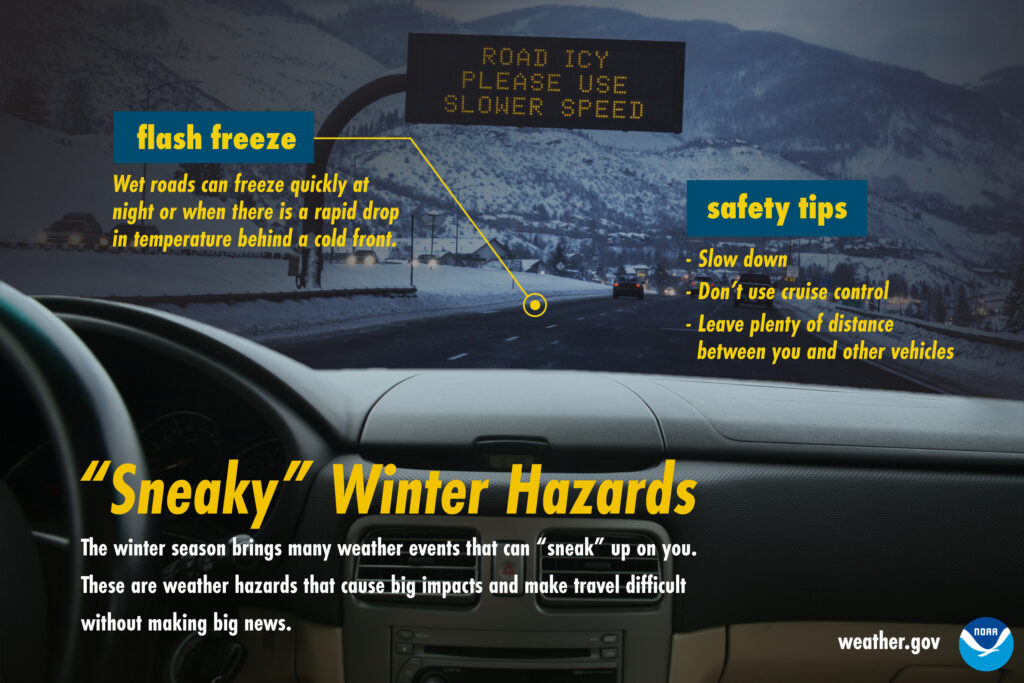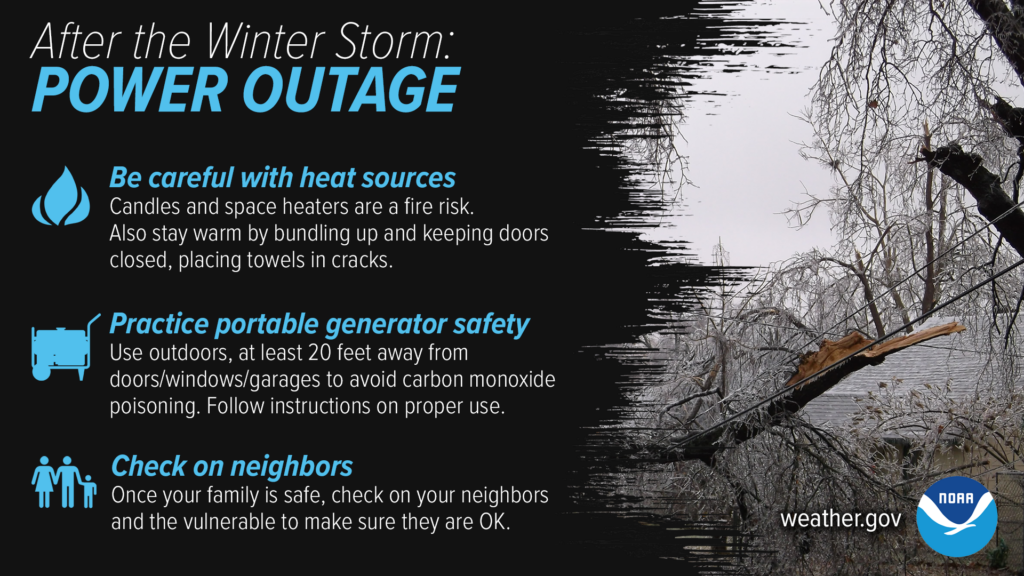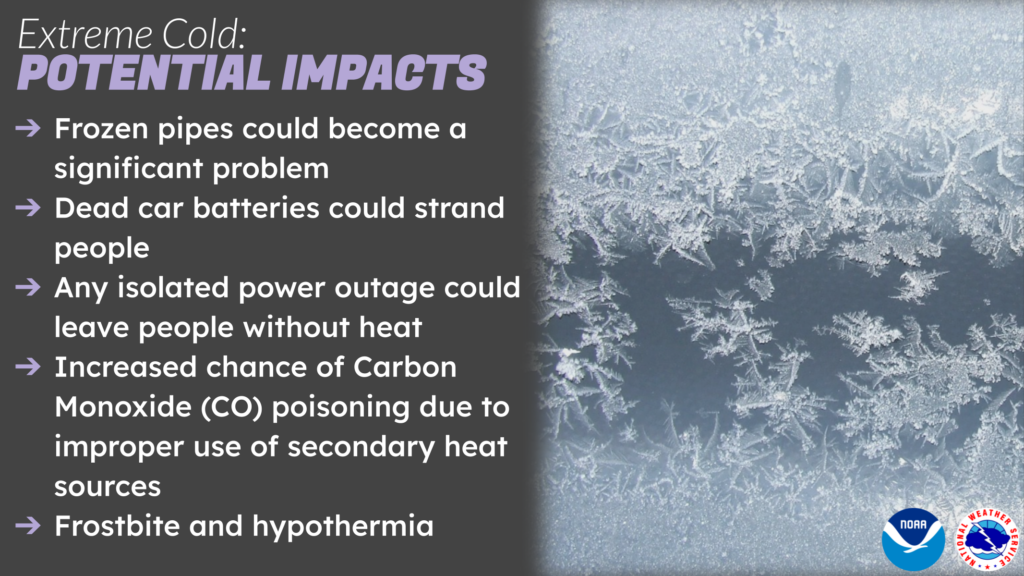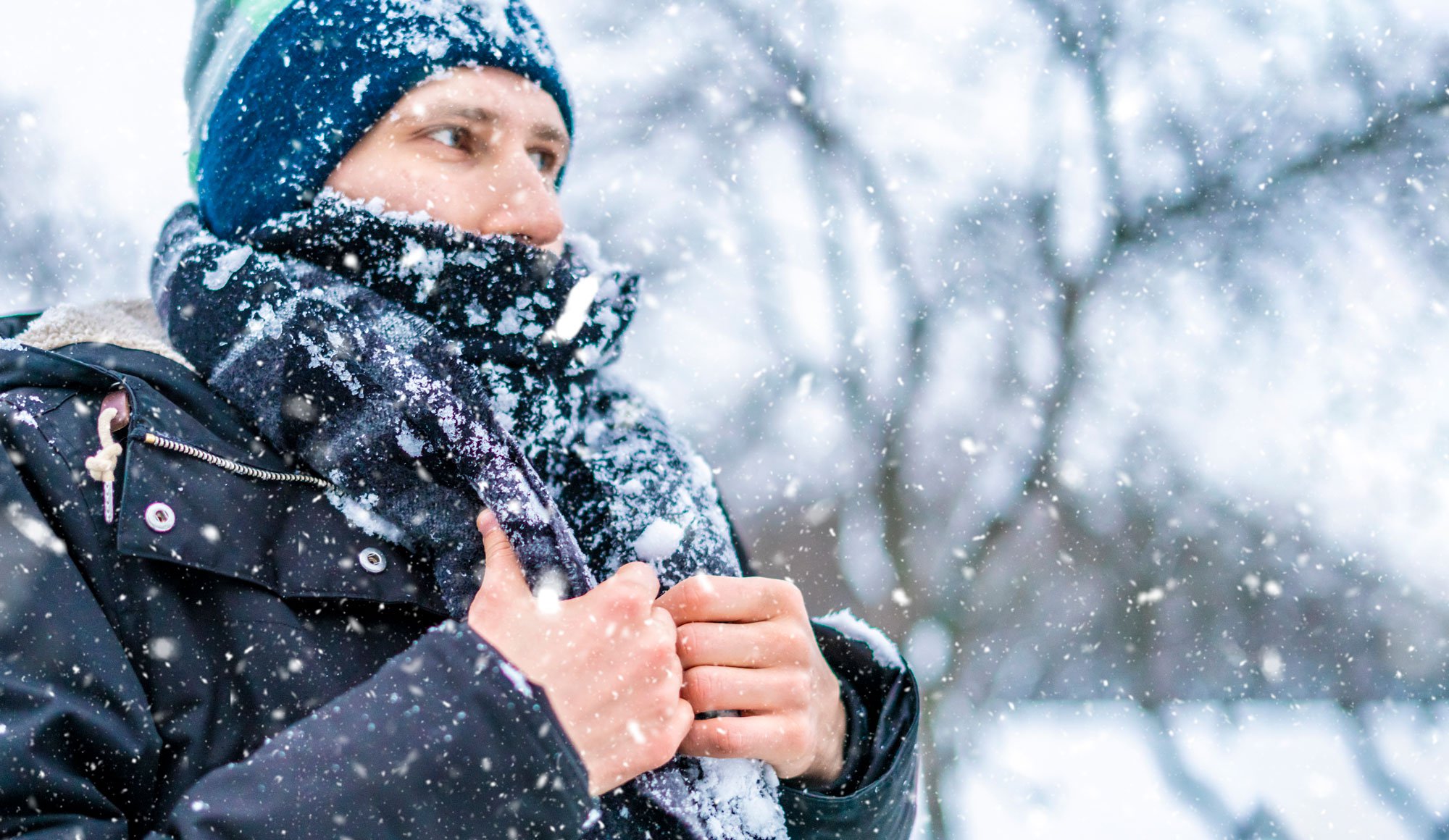Winter Safety Information
Snowstorms and extreme cold are attributed to winter seasons in the Midwest. Winter storms and icy conditions can create a higher risk of car accidents, hypothermia, frostbite, and carbon monoxide poisoning.
Winter storms can create blizzard conditions, freezing rain, snow, ice, extreme cold, and high winds. A severe winter storm can last for several days, can cut off heat, and cause prolonged power outages.
Know what to do BEFORE winter weather threatens.
Ohio’s Winter Safety Awareness Week, generally held the third week of November, is the perfect time to ensure your homes and vehicles are prepped and conditioned before the winter season.
- Know your area’s risk for winter storms, including lake-effect snow. Extreme winter weather can leave communities without utilities or other services for extended periods of time.
- Winterize your home. Install caulking and weather stripping around doors and windows. Check/renew insulation. Insulate pipes to reduce freezing. Install and test smoke alarms and carbon monoxide detectors.
- Pay attention to weather reports and warnings of freezing weather and winter storms.
- Sign up for your community’s warning system. The Emergency Alert System (EAS) and NOAA Weather Radio also provide emergency alerts.
- Gather supplies or restock your disaster supply kits, in case you need to stay at home for several days. Keep in mind each person’s specific needs, including medication. Remember the needs of your pets. Have extra batteries for radios, flashlights and cellphones.
- Create an emergency supply kit for your vehicle. Include jumper cables, sand, a flashlight (hand-crank or battery-operated), first aid kit, warm clothes, gloves, hats, bottled water and non-perishable snacks. Try to keep a full tank of gas.
Know what to do DURING a winter storm.
- Stay off roads, if at all possible. Check road conditions before traveling: Ohio Dept. of Transportation’s www.ohgo.com. If you become trapped in your car, stay inside and call or signal for help.
- Limit your time outside. If you must go outside, dress in layers. Wear a coat, hat and gloves. Watch for signs of frostbite and hypothermia.
- Avoid carbon monoxide poisoning. Never use generators or grills indoors, in garages or near windows. Never heat your home with a gas stovetop or oven.
- If it is safe to do so, check on your neighbors.
SOURCE: https://ohio.gov




